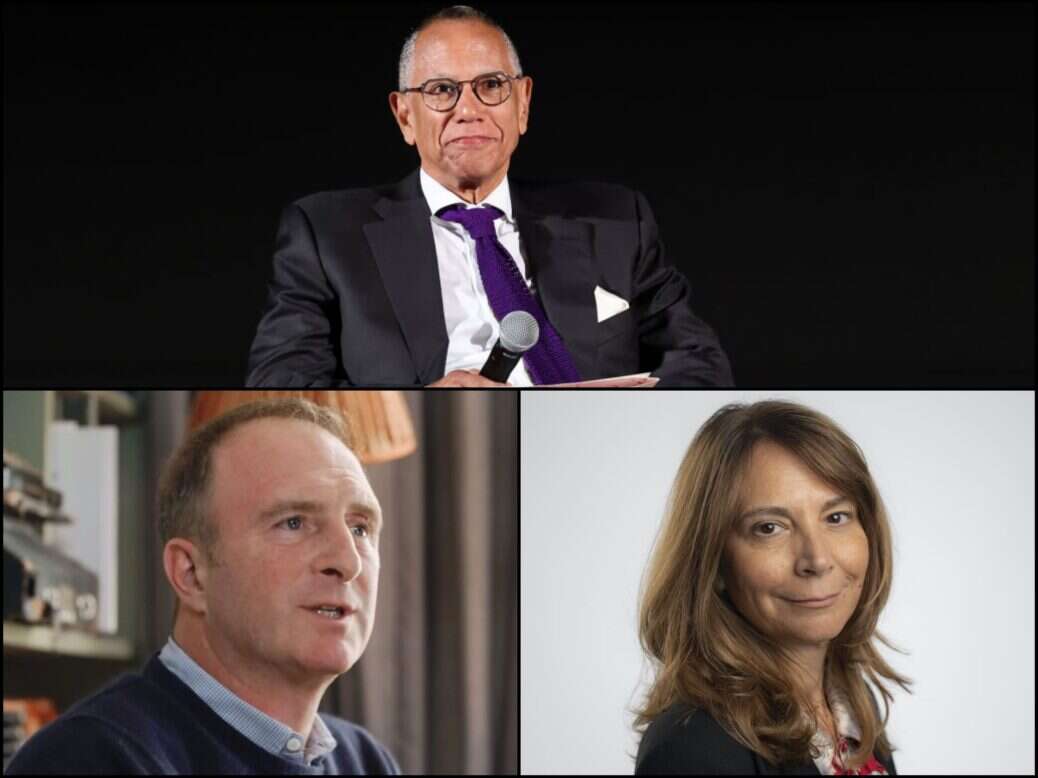
Publishers that “relentlessly” publish big investigations “end up thriving” in the long-term, a group of editors have suggested.
Former New York Times executive editor Dean Baquet told last week’s Sir Harry Summit in London that he could not say if the newspaper’s Pulitzer Prize-winning investigation into Hollywood producer Harvey Weinstein had a direct impact on readership or subscriptions, but that he believed that type of reporting has a cumulative effect.
Baquet said: “I do think that over time that tells people we’re a certain kind of news organisation and while I can’t make a direct link, I believe that there’s a link.”
Panel host Amol Rajan later referred to the results of a Yougov poll published days earlier that gave trust scores to the US news media, saying it showed that “generally speaking, trust in news is falling off a cliff”.
The highest net trust scores in that poll were for The Weather Channel (53), PBS (30), and BBC (29). The New York Times had a score (calculated by taking the difference between the percentage of American adults who said they trusted the source compared to those who expressed distrust) of 12.
Baquet responded by placing some of the blame at the feet of Donald Trump – but saying investigative journalism can help restore the news media’s reputation.
“It makes sense that – remember, we just spent four years with the President of the United States relentlessly attacking news organisations that did tough reporting about him. That’s contributed, but actually, investigative reporting, when it’s right, when it’s true when it has impact, will help to restore our reputation.”
He added: “I think all of us are talking about the long game, right? Can I prove that the day after the Harvey Weinstein stories that suddenly our circulation went up? No, and I bet everybody else can say the same thing.
“Can I say that the institutions that do that kind of work relentlessly end up thriving? I suspect if we look down the line, that that’s true.”
Subscribers willing to pay ‘just for that one story’
Financial Times editor Roula Khalaf told the audience of hundreds of journalists that the newspaper’s six-year, award-winning investigation into fraudulent German fintech company Wirecard led to a “massive” uplift in subscribers from Germany.
“And obviously, as with many investigations, a lot of subscribers write in the comments that they’re willing to pay for the FT just for that one story,” she said. “And Wirecard was the best example of that.”
Also on the panel was James Harding, the former editor of The Times and director of BBC News who co-founded slow news outlet Tortoise Media in 2018.
Harding said that series one of Tortoise’s investigative Londongrad podcast, in which host Paul Caruana Galizia examined the influence of Russian money in British public life, appeared to have an impact on subscriber sign-ups.
He said episode one of Londongrad, released in June last year, “did double what we normally see” with a subsequent uptick of 20% week-on-week.
‘Not a straight line’ between investigations and subscriptions
But he said the connection between investigations and subscriptions is “not a straight line and it doesn’t always work”.
Harding said: “You do see with subscribers that the issue is that you don’t have an obvious correlation between the time and resources you put into an investigation and what you get out commercially… you shouldn’t think in that way, you’ve got to think overall what are we here for and over time believe that people will come and support it and engage in it.”
He cited Tortoise’s deputy editor Giles Whittell who has said there are only three kinds of stories: stories you should read, stories you want to read, and stories you do read. “We’ve got to make sure we find the third,” Harding said.
Khalaf agreed but said the economics of reporting does frequently have to contribute to decision-making.
“I think James is absolutely right. That’s not what you think about when you are working on a story. But good journalism is very expensive and we have to be cognisant of that,” she said.
“The problem today is that we don’t see a lot of local journalism anymore because… especially in the UK, the lawyers can put you under incredible pressure. We can withstand it, Dean can withstand that, Nick [Davies] can withstand it, but a lot of organisations cannot withstand that and so they will they will not pursue investigations because of that. So I think the economics of journalism is actually very important to them.”
Nick Davies, the journalist who broke the phone-hacking scandal for The Guardian, appeared on the same panel. Discussing the investigation, he said: “You can’t do an investigation like phone-hacking unless you have an organisation and editor behind you and the organisation and the editor need to be at the opposite end of the spectrum from where most of them are, ie. not thinking commercially all the time and with a certain moral obsession.”
Later in the day, Guardian editor-in-chief Katharine Viner said investigations have a significant impact on driving reader contributions to the news brand.
“The harder the investigation, the more challenging, the more legal attacks we have, the more the readers come and back us,” she said. “And so I think it’s a really inspiring model for investigative journalism.”
Email pged@pressgazette.co.uk to point out mistakes, provide story tips or send in a letter for publication on our "Letters Page" blog
